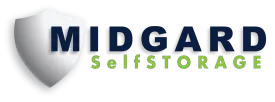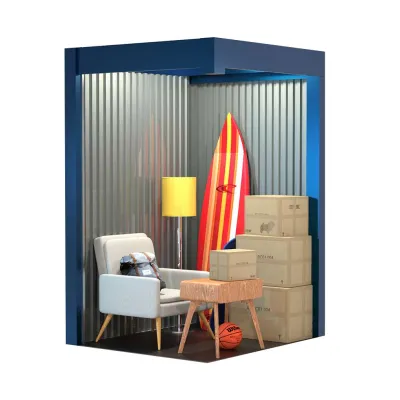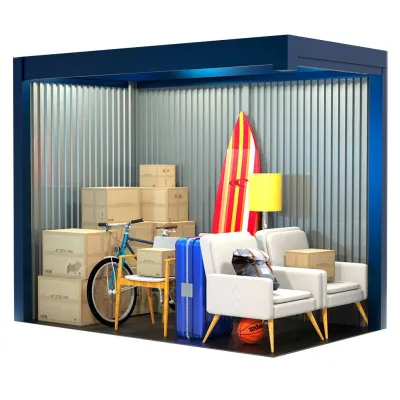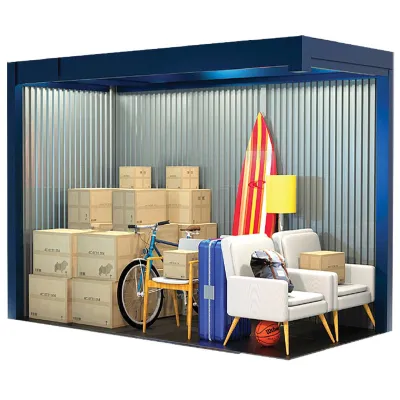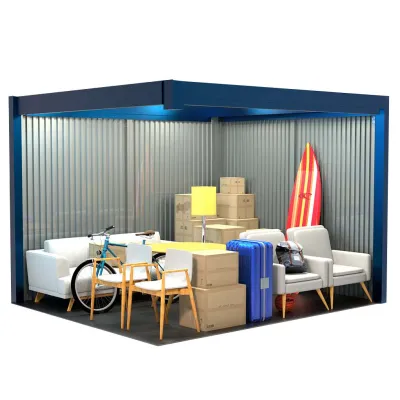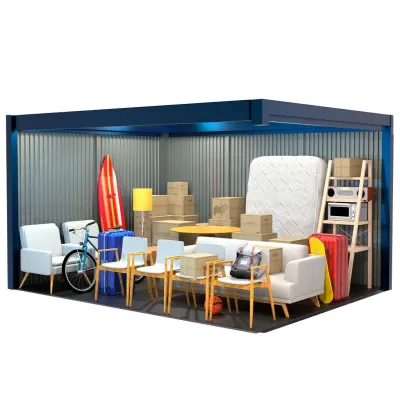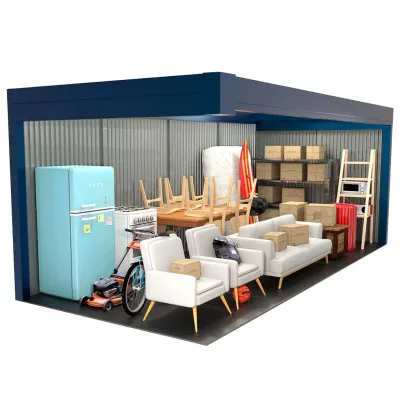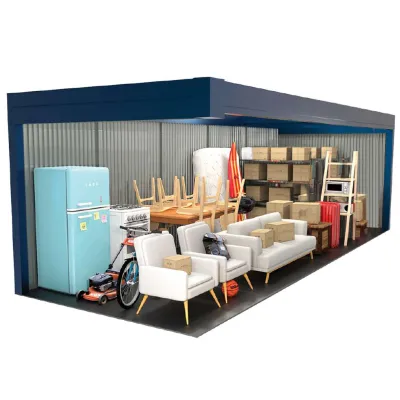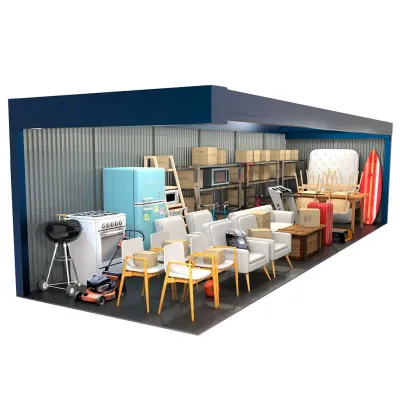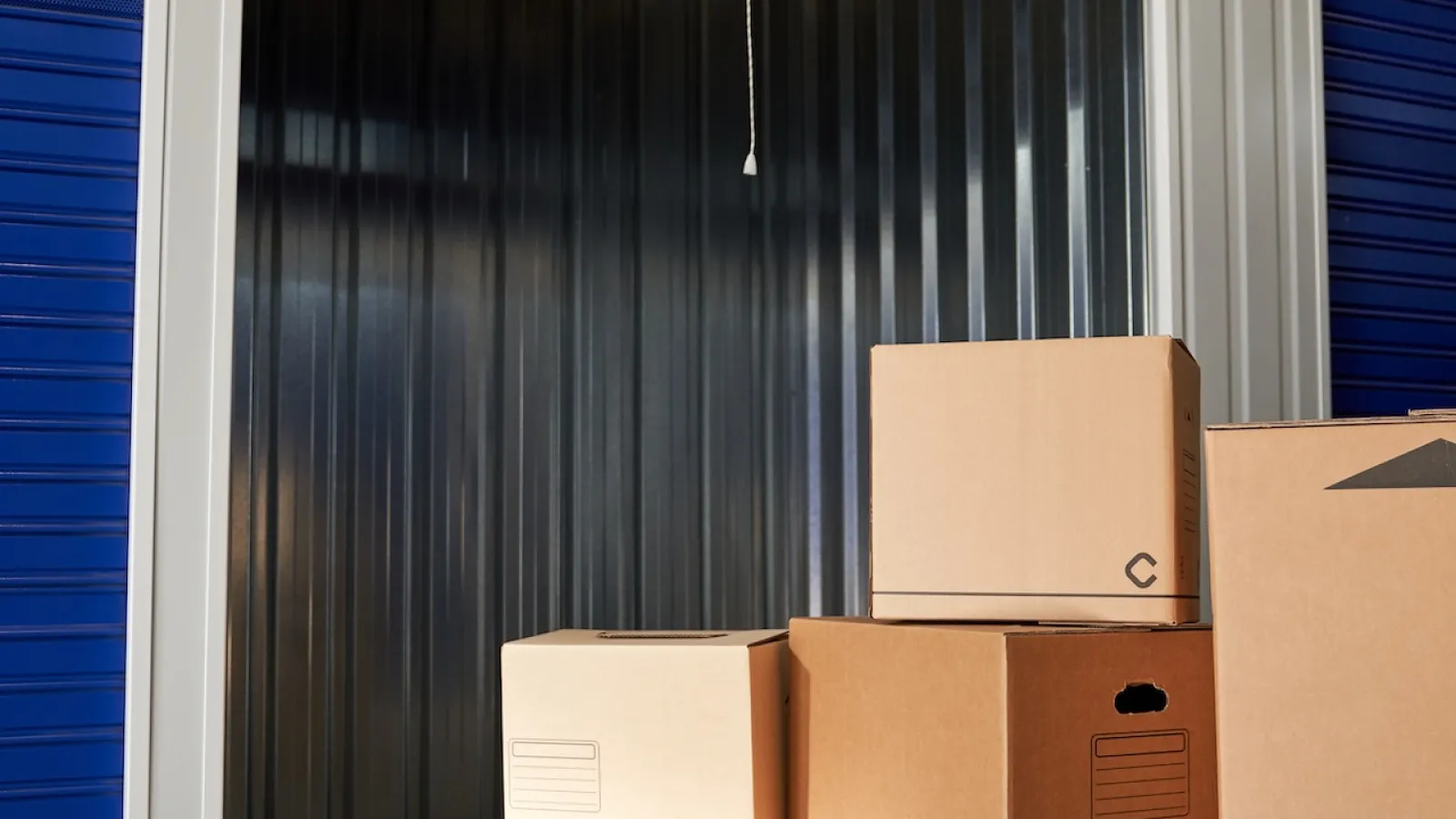
Renting vs. Owning: The Pros and Cons of Storage Units
What will work best for you: a storage unit on your property or renting a unit for storage from a local business? It'll come down to a few factors and what's most important to you. Price? Accessibility? Climate control for sensitive items?
Here's a breakdown of all the considerations you should keep in mind when using different units for storage and what may work best for your specific needs.
Renting vs. Owning a Storage Unit
Before diving into the pros and cons, let's take a moment to break down what it actually means to rent or own a storage unit.
Renting a Storage Unit: Renting involves paying a regular fee to access storage space at an off-site facility. These facilities often come with added perks like security, climate control, and flexible access.
Owning a Storage Unit: Owning means purchasing a storage unit outright. This could include a standalone structure (like a shed or garage) on your property or a storage condo that you own within a dedicated complex.
Now, let's explore what makes each option appealing and where they may fall short.
Pros of Renting Off-Site Units for Storage
Convenience: Renting a storage unit offers unmatched convenience. Facilities are usually located nearby and are professionally managed, so you don't need to worry about maintenance or upkeep.
Flexibility: Need storage for just a couple of months? Or perhaps extra space while you're transitioning to a new home? Renting allows you to choose short-term or long-term agreements based on your needs.
Space-Saving Solution: Do you have limited space at home? Renting lets you store seasonal items, like holiday decorations or sports gear, without overcrowding your living area.
Security Measures: Many storage facilities provide robust security features, such as gated access, surveillance cameras, and on-site staff, ensuring peace of mind.
Climate-Controlled Options: Renters can often choose climate-controlled units for storage, which are ideal for delicate or temperature-sensitive items such as artwork, antiques, or electronics.
The Cons of Renting Storage Units
Recurring Costs: While renting offers flexibility, the monthly fees can add up over time, especially for a long-term arrangement. If you know how long you're planning to use a unit for storage, you can compare that to the price of purchasing a unit for a property and decide which works best.
Shared Environment: When you rent, you're sharing space with other users, which means the facility can experience wear and tear, cleanliness issues, or security risks depending on the area.
Location Limitations: Depending on where you live, the nearest storage facility may not be as close or accessible as you'd like.
Would It Be Better to Buy a Unit for Storage?
Cost Efficiency in the Long Run: While purchasing or building a unit has initial costs, owning is often more affordable in the long term—especially if you plan to use storage consistently over many years.
Unrestricted Access: Owning a storage unit provides unlimited access to your schedule since the unit is typically on your property or in an easily accessible location.
Full Control: With ownership, you're in complete control of how the space is used, customized, and maintained. No rules or restrictions apply.
Versatile Investment: A storage shed or garage used for storage can also serve other purposes, such as housing equipment or doubling as a workspace.
The Cons of Owning Storage Units
Space Limitations: Owning means the unit is tied to a specific location, such as your property. If you move, you lose easy access. Additionally, you need sufficient space on your property to set up storage.
Upfront Costs: Buying or building a unit requires a significant upfront investment, which might not be ideal for those on tight budgets.
Lack of Climate Control: Most standalone storage options, like sheds or garages, are not equipped with climate control, which may affect the longevity of your belongings.
Maintenance Responsibility: Repairs, cleaning, and maintenance of the unit—that's all on you. Over time, this can add both cost and inconvenience.
Security Concerns: Unlike professional rental facilities that often have state-of-the-art security, owned storage units may lack advanced security features unless you invest in them yourself.
Choosing the Right Option for You
Which is best for your situation?
Renting Might Be Ideal If:
You need short-term or flexible storage.
You require professional security and climate control for valuable items.
You don't have space on your property for a permanent unit.
Owning Might Be Ideal If:
You have the space to set up and use your own unit.
You prefer having complete control over your storage space.
The choice between renting and owning units for storage comes down to your personal preferences, budget, and specific storage requirements. Renting offers flexibility, convenience, and added features, while owning provides control, long-term cost savings, and versatility.
Not sure which option is right for you? Start by thinking about your storage needs. How long will you need the space? What kind of items are you planning to store? Those questions should point you in the right direction.
Are you leaning toward renting? Want insights on renting the perfect storage unit or access to exclusive deals? Explore Midgard Self Storage and see if we'd be the right fit as your storage facility.
